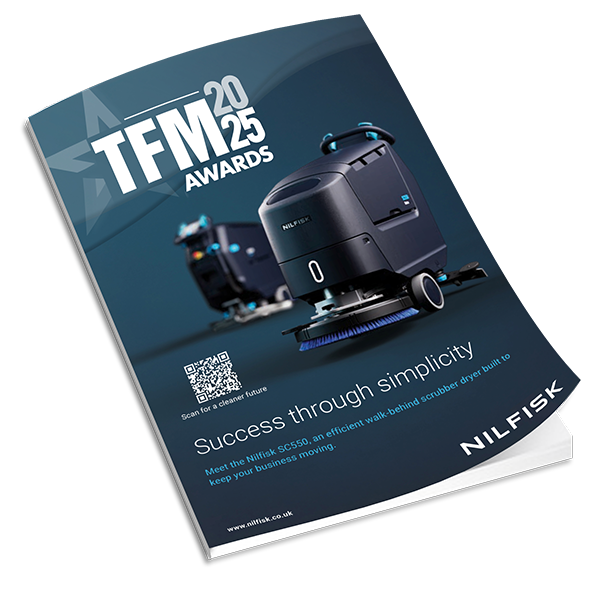Amal Nozieres, Founder of Axiomova, outlines wow hybrid and on-prem AI agents can cut backlog, protect data, and integrate with the tools FM teams already trust.
The FM support challenge
Facilities Management (FM) has always been a juggling act: reactive tickets, planned maintenance, statutory compliance, tenant comfort, contractor coordination.
What’s changed in the last five years is the volume and complexity of these requests: Email remains the dominant channel for tenants, but inboxes are flooded; union agreements and statutory checks impose strict rules on how tasks are handled ; out-of-hours requests still need routing to the right on-call contractor ; and sustainability goals add pressure: energy, heating, and cleaning data must be captured and reported.
With tight budgets and staff shortages, FM helpdesks are expected to deliver more with less. SLA breaches are rising, and frontline staff are under pressure: too many tickets, too much duplication, and too little visibility.
How it works
Tenant requests (email or web form) go through the AI Orchestrator, which classifies and enriches them before routing to:
- CAFM/CMMS systems for work orders,
- IoT sensors/BMS for live data,
- or Cloud LLMs (redacted/logged) for advanced reasoning.
This keeps workflows seamless and data secure.
Why on-prem and hybrid AI are the right fit
Cloud AI (OpenAI, Anthropic, Gemini, etc.) can classify and respond with impressive accuracy. But FM is not a call centre. It carries sensitive tenant data, complex workflows, and compliance requirements.
That’s why FM operations benefit from a hybrid or on-prem deployment.
The three big wins from this are:
- Data control by design: requests, invoices, and maintenance logs stay inside your estate, reducing data-leakage risk.
- Custom workflows: adapt to union rules, health and safety checks, and building-specific logic.
- Low-latency dispatch: the AI runs close to your CAFM/CMMS, so tickets flow even if the WAN is flaky.
Hybrid AI doesn’t mean rejecting the cloud: it means using it where useful (e.g. advanced language reasoning) while keeping one clear orchestration tool. Think of it as a control dial, not a binary choice.
From inbox chaos to clean workflows
Every FM team knows the inbox chaos. Things like a broken tap reported by email with a blurry photo attached ; a room-cleaning request copied to multiple people ; or a BMS alert showing floor temperature above 28°C.
Without automation, each requires manual reading, triage, and logging. With an AI agent:
- Email is instantly classified (plumbing, cleaning, HVAC).
- Key details such as location and SLA are extracted.
- Ticket is logged directly into the CAFM.
- The right contractor or team is notified.
- The requester receives confirmation and ETA.
What once took 10 minutes now takes seconds. The team intervenes only when a request is unusual, urgent, or sensitive.
A pragmatic 90-day plan
Rolling out AI doesn’t need to be a multi-year project. A phased approach delivers results fast:
Weeks 1–2: Map the chaos. Set guardrails, categories, and escalation rules.
Weeks 3–6: Shadow mode: AI classifies, humans verify. Results tracked, errors flagged.
Weeks 7–10: Go live on top 10 use cases: plumbing, cleaning, HVAC, common tickets.
Weeks 11–12: Scale: dashboards, contractor dispatch, more categories.
This staged adoption limits risk, proves quick wins, and builds frontline confidence.
Metrics FM leaders care about
- SLA compliance ↑
- First-response speed ↑
- Average handle time ↓
Buyer’s checklist
- Clear audit trail + ‘why’ explanations
- Fine-grained permissions
- Native CAFM/CMMS connectors
- Data-loss prevention
- Easy rollback without breaking workflows
- SLA tracking dashboards
- Role-based access control
The bigger picture
Hybrid AI is not about tickets; it’s about turning support desks into intelligent hubs that connect:
- Tenant experience (faster, clearer updates)
- Contract management (right trade, right time)
- Compliance (automatic, audit-ready reporting)
- Sustainability (energy/cleaning data captured seamlessly)
FM leaders who wait risk rising SLA breaches, higher contractor costs, and tenant dissatisfaction. Those who act now will turn AI from an add-on into infrastructure — protecting budgets, ensuring compliance, and building tenant trust.







































